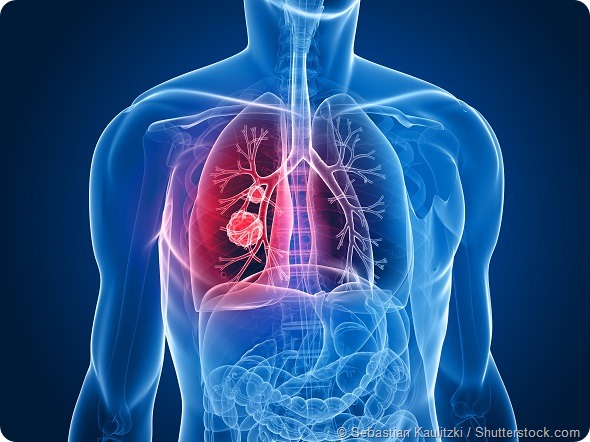Understanding how lung cancer affects patients from a social perspective is vital. People living with lung cancer, lung cancer survivors and carers are impacted by lung cancer in different ways.
As a member of the Global Lung Cancer Coalition (GLCC), our experience in the Irish Cancer Society is that every patient, survivor and carer is different and their needs are as unique as they are.
Health care systems are designed around the medical needs of patients but the social aspects of their diagnosis is often forgotten. Rarely do we consider how lung cancer impacts their world and who they were before their diagnosis.
Furthermore we know that limited data exists on the relative importance of these issues not just for the patients with lung cancer but for their family and carers. That’s an important thing to remember; lung cancer affects everyone, the patient, their family and their friends.
Can you please outline the aims of the ‘Lung Cancer: We’re Listening’ online campaign?
The aim of the ‘Lung Cancer: We’re Listening’ campaign was to define the needs of these patients more clearly so we can better cater for their specific needs.
Several members of the GLCC worked closely with Boehringer Ingelheim to create 200 challenges faced by lung cancer patients and carers. These challenges were created based on what the 32 member organizations of the GLCC hear from patients and carers on a daily basis.
These challenges were divided into two groups; medical care and daily life. Each challenge was represented online by an illustration and a text descriptor. This was in an effort to make the campaign as accessible as possible to as wide an audience as possible.
Respondents chose sub-categories of challenges until one specific challenge was identified as the most significant to them.
Once they had established their biggest challenge, we asked them three more questions about their ability to cope with the challenge, help they required and whether they needed more information.

What was learnt about the challenges lung cancer patients face?
In total 725 individuals around the world completed the web-based survey; 48% were living with lung cancer or a lung cancer survivor and 52% were carers. These figures reflect the experience of the GLCC member organizations and reinforce the point that lung cancer affects everyone, not just the patient. It is a family disease.
The majority of respondents were female (64.5%), from Western/ Eastern Europe and Scandinavia (38.1%) and aged between 41 and 60 years old (41.2%).
Nearly two thirds (64%) of current or previous lung cancer patients identified a daily life challenge as their most significant, compared to a medical care challenge. Just over half of carers (55%) chose a daily life challenge as the most significant, compared to a medical care challenge.
So the key learning from the ‘Lung Cancer: We’re Listening’ campaign was that daily life challenges are a greater concern for both patients and carers. This is significant considering that healthcare systems around the world are focused on the medical aspects of lung cancer.
What were the main daily life and medical care challenges patients and carers faced?
In daily life ‘Emotional and Social Needs’ of patients and carers was the most significant sub-category (19.8%). This is unsurprising as research has repeatedly shown us that lung cancer patients and carers suffer greater distress than other cancer types.
This is because of a multitude of factors; they have been diagnosed with the world’s biggest cancer killer, sadly the majority of patients are diagnosed with advanced disease, they often suffer debilitating symptoms and many are faced with the additional distress of stigma and blame that a lung cancer diagnosis can bring.
Other significant sub-categories included:
- Survivorship / caring for myself (14.8%)
- Body Image (13.8%)
- Changes in Roles and Relationships (13.3%)
- Financial issues
- Getting around
- Stigma
- Work related issues
- Communication issues
In medical care ‘Diagnosis’ was the most significant sub-category (20.5%). Again, this finding was reflected in the experience of the GLCC member organizations. Diagnosis is an extremely distressing time for both patients and carers so it is unsurprising that they have both chosen it as their greatest challenge under medical care.
Other significant sub-categories included:
- Treatment planning & options (18.9%)
- Receiving treatment (14.9%)
- Post-treatment (13%)
- Survivorship / Caring for myself
- Relapse / recurrence
- End of life issues
- Screening
How did the daily life challenges compare to the medical care challenges?
When comparing daily life to medical care, an interesting finding is the difference between carers and patients.
More patients than carers highlighted daily life as their biggest challenge. Similarly more carers than patients highlighted medical care as their biggest challenge.
If we consider how healthcare systems are designed around the world, healthcare professionals are routinely focused on the medical aspects of the disease and on the lung cancer patients. So it is possible that patients feel they are more supported in their medical care and in turn find daily life a greater challenge.
In comparison, carers including family and friends rarely get an opportunity to spend significant time with healthcare professionals so it is unsurprising that they identify medical care as their greatest challenge.
The Irish Cancer Society receives more calls to its Cancer Nurseline from lung cancer carers than lung cancer patients for this reason, these carers are often overwhelmed by having to care for a loved one at home.
Sadly the reality is that the majority of lung cancer patients are diagnosed with advanced disease and often experience debilitating symptoms so it is unsurprising that more carers identified medical care as a challenge.
Why do you think the emotional and social needs of patients and carers was the most significant daily life challenge and what needs to be done to help support patients and carers?
Healthcare systems around the world traditionally focus on the biomedical approach to disease. I think this is the reason that lung cancer patients and carers have told us that daily life is their greatest challenge, specifically their emotional and social needs.
The ‘Lung Cancer: We’re Listening’ campaign has identified that these needs are not fully met by their healthcare professionals. The challenge now is for healthcare professionals to start considering the emotional and social aspects of the disease and to provide appropriate care and support to meet those needs.
Lung cancer needs to be viewed as a disease that affects the whole person, not just physically but emotionally and socially as well.
A well-recognized study performed by Zabora et al. in 2001 (sample of 9,000 patients) examined the prevalence of psychological distress by cancer site and found considerable variation.
Of the patients surveyed, 43% of lung cancer patients experienced elevated levels of distress in comparison to 32% of breast cancer patients, 31% of bowel cancer patients and 30% of prostate cancer patients (1).
Numerous studies have subsequently confirmed that lung cancer patients are more distressed than other cancer types.
The National Comprehensive Cancer Network (NCCN) (2009) define distress as
a multifactorial unpleasant emotional experience of a psychological, social, and / or spiritual nature that may interfere with the ability to cope effectively with cancer, its physical symptoms and its treatment. Distress extends along a continuum, ranging from common normal feelings of vulnerability, sadness, and fears to problems that can become disabling, such as depression, anxiety, panic, social isolation, and existential and spiritual crisis."
Were you surprised by any of the findings of the campaign?
No, ‘Lung Cancer: We’re Listening’ has confirmed for us what the GLCC member organizations are hearing; psychosocial issues related to daily life and a lack of relevant information posed some of the greatest challenges to lung patients and carers.
The majority of patients and carers identified daily life issues such as dealing with emotional needs, self-care, body image or changing relationships as more significant than medical care issues such as diagnosis, treatment planning or screening.
There are current gaps in lung cancer care, support and provision of information and these should be routinely identified and alleviated by healthcare professionals to ensure lung cancer patients and carers receive the necessary spectrum of support and information. The We’re Listening campaign has increased our understanding of the most important challenges for individuals affected by lung cancer.
What do you think will be the main challenges in creating a more holistic approach to lung cancer care moving forwards and how can they be overcome?
I think the main challenges can be found within the results of this study. Once the respondent had identified their greatest challenge, we asked them three further questions about their ability to cope with the challenge, help they required and whether they needed more information.
Worryingly the results were very clear; most patients and carers struggle to cope and need more information;
- 25.5% indicated they require a lot of help from either a carer or professional
- 50.8% of participants indicated their lack of ability to cope was their greatest challenge related to lung cancer
- 56.2% specified a need for information
I think the greatest challenge for healthcare professionals is meeting these needs within the busy clinical environment.
However patients and carers are clearly telling us what they need us to do; provide more information, ask more questions about how they are coping and whether they need help with any other aspects of their diagnosis.
Where can readers find more information?
References:
- Zabora et al. (2001) The prevalence of Psychological Distress by cancer site. Psycho-Oncology, 10, 19 – 28.
- National Comprehensive Cancer Network (2009) NCCN Clinical Practice Guidelines in Oncology: Distress Management. Retrieved from http://www.nccn.org
About Aoife McNamara
RGN, BNS, Grad Dip. Cancer Care, MSc Psycho-oncology
Information Development Manager at the Irish Cancer Society
I have worked in the field of oncology for over ten years. It was an interest in psycho-oncology that lead me to the National Cancer Helpline, allowing me more time to address the psycho-social needs of cancer patients and family members.
My role also included the production of patient literature, website development, social media development and media spokesperson for national cancer awareness campaigns. I was in this position for seven years.
In January 2015, I commenced the role of Information Development Manager in the Irish Cancer Society. I am responsible for developing and managing a strategy for the development of cancer information and ensuring that the Society meet their strategic goal of 'Improving Lives - To ensure that everyone gets appropriate and relevant information on cancer prevention, treatment and care to help them make informed decisions'.
In addition to my academic qualifications, I am also co-ordinator of Irish lung cancer nurses group (ILCNG) and represent the Irish Cancer Society on the Global Lung Cancer Coalition